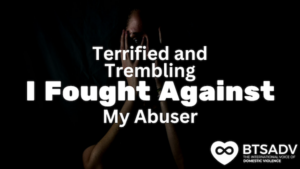By Jenn Rockefeller
A friend gets into a bad accident and tells you about it, and then you begin to have nightmares about that accident despite you not even experiencing it firsthand. Maybe you’re in a helping profession and the experiences of those you help are starting to affect you. You are experiencing what is called vicarious trauma. What is it and how can you tell if you are experiencing it?
Definition
According to Merriam-Webster, vicarious means “experienced or realized through imaginative or sympathetic participation in the experience of another.”
So when the term vicarious trauma is discussed, it means that you are experiencing someone else’s trauma simply by them talking about it, discussing it at length, and even mentioning details of that trauma. It’s the cumulative effects of other people’s emotions that you somehow take on as your own.
How it can impact you
Vicarious trauma can have a serious impact on a person’s mental health if it’s not addressed in a timely manner. It can leave you with extreme emotional distress, especially if you are in a helping profession that hears other people’s trauma on a daily basis.
Furthermore, it can leave you with symptoms that bear a striking resemblance to post-traumatic stress disorder (PTSD), as well as adversely affecting your identity, self-esteem, sense of safety, ability to trust and intimacy. So it’s imperative to keep a close eye on yourself and develop healthy boundaries so that you can become more aware of the first signs of experiencing it.
Signs that someone is experiencing it
According to Good Therapy, signs of vicarious trauma fall into five categories – emotional, behavioral, physiological, cognitive and spiritual.
- Emotional – Signs of emotional vicarious trauma include prolonged periods of anxiety, grief or even sadness. You may feel like you are frequently distracted, and can become angered quickly.
- Behavioral – You may begin to feel isolated, have difficulty sleeping, and even begin to notice changed eating habits. You may even begin to blur the lines of personal and work life and engage in risky behaviors.
- Physiological – These symptoms can take on the form of rashes, headaches, heartburn, rapid heartbeat, and ulcers.
- Cognitive – Someone who experiences cognitive symptoms of vicarious trauma can have difficulty concentrating, difficulties in daily decision making, may become cynical, and have the trauma constantly on their minds.
- Spiritual – Symptoms include feelings of hopelessness and unworthiness, as well as feeling a disconnect from others around you.
What you can do if you’re experiencing it
The best thing you can do if you’re experiencing vicarious trauma is to practice self-care. It’s a vital part of taking care of ourselves. But how do you know when you’re in need of self-care? As long as you incorporate self-care activities into your daily life, you can become a creature of habit and self-care will become second nature.
Activities like eating healthy, regular exercise, taking walks, journaling, meditation, deep breathing exercises, therapy/counseling, and yoga are among the many things you can do to combat the toll that vicarious trauma can take on you.
If you or someone you know is in an abusive relationship, there is help. You can visit the Break the Silence website at www.breakthesilencedv.org or chat with one of our helpline advocates at 855-287-1777.










